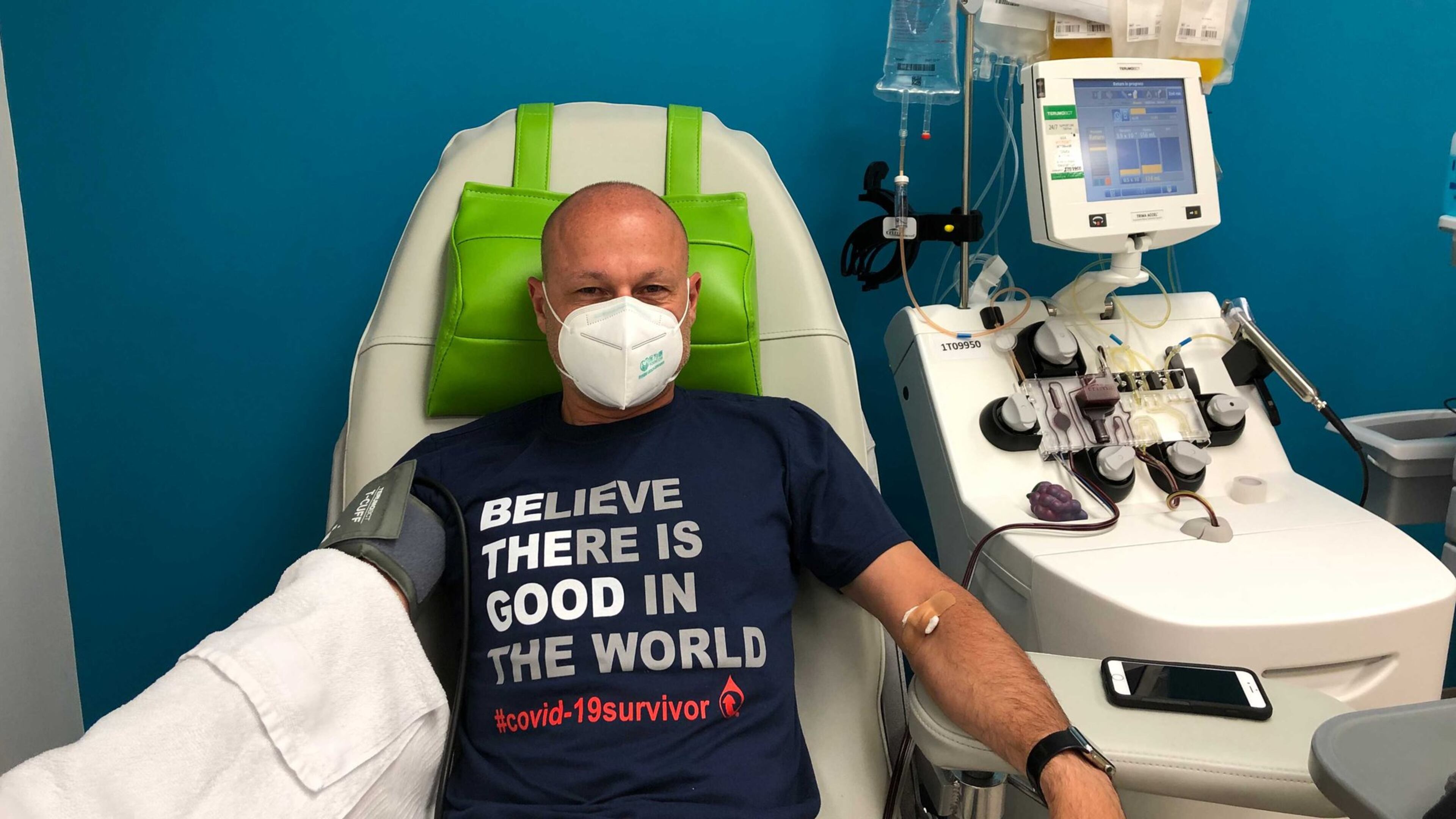Plasma therapy could be ‘liquid gold’ for COVID-19 treatment

Domenico Piccininni is alive. It shouldn’t be taken lightly.
The 50-year-old DeKalb County resident’s health was in question several weeks ago. He had COVID-19.
About two weeks ago, Piccininni walked into Northside Hospital to give some of his blood plasma for researchers to use as potential treatment for COVID-19 patients.
The donation is his opportunity to help.
“We’re constantly told to wash our hands. We need to wash our hearts,” Piccininni said in a telephone interview. “This is an opportunity for me to wash my heart.”
» AJC IN-DEPTH: The fight for a cure
Blood plasma donations are being increasingly used by researchers to treat those with the disease. The idea is the injected plasma has antibodies that attack and destroy the infection in current COVID-19 patients. Liquid gold, some call the plasma because of its color and value. Actor Tom Hanks, who recovered from COVID-19, posted a photo on Twitter last week of him giving blood plasma.
Here’s last week's bag of plasma. Such a bag! After the paperwork, it’s as easy as taking a nap. Thanks @arimoin and UCLA. Hanx pic.twitter.com/15WblGiVwe
— Tom Hanks (@tomhanks) April 29, 2020
Studies, though, vary about its effectiveness.
“We believe this should work, but we haven’t proven it yet,” said Dr. Kent Holland, medical director of Northside Hospital’s blood and marrow transplant program.
Emory University is preparing to do its own plasma therapy study. They are hoping to identify donors with the best neutralizing antibody response, said Dr. Rafi Ahmed, director of Emory’s vaccine center. Ahmed said those donors should have plasma that can more effectively attack the disease.
Blood plasma, or convalescent plasma, has been used for a century to treat various diseases. Holland noted doctors used it to treat the Spanish flu pandemic in 1918.
Holland said donors must be two weeks removed from infection and tested to show they no longer have the disease. The plasma is taken to a lab and frozen or taken to a hospital where it is needed.
The primary recipients are seriously ill patients on respirators or high-risk patients.
Northside has had about 50 donors and is accepting potential donors through Atlanta Blood Services. About 40 patients have received plasma, he said. It's too early, Holland said, to discuss results "but we should have a better idea in about two to three months."


